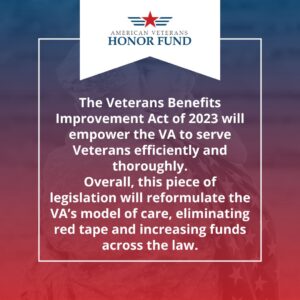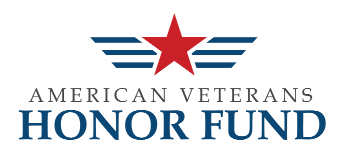As the legislative year draws to an end, one of 2023’s most significant legislative victories is finally ready for the Senate floor. The Veterans Benefits Improvement Act of 2023 will empower the VA to serve Veterans efficiently and thoroughly.
Overall, this piece of legislation will reformulate the VA’s model of care, eliminating red tape and increasing funds across the law. However, these benefits are not immediately apparent upon reading the text of the law.
So what does this act actually say? And what changes can you expect once it comes into force?
Who is Behind the Veterans Benefits Improvement Act?
The Veterans Benefit Improvement Act was created in early 2023, as HR 1530. It was initially sponsored by a bipartisan team comprised of:
- Democrats Chris Pappas from New Hampshire, Morgan McGarvey from Kentucky, and Julia Brownley from California
- Republicans Morgan Luttrell and Keith Self, both from Texas
Despite representing vastly different demographics and ideologies, this team was brought together for a cause that goes beyond politics: to ensure Veterans and Service members can access the due compensation for their bravery. Four of these signers sit on the Veterans Affairs Committee, and three of them are also on the Disability Assistance subcommittee.
HR 1530 was approved by the House in mid-September. Then, it rose quickly on the Senate schedule, thanks to the support of Jon Tester. As a long-serving Senator for Montana, Tester is best known for his identification with farming issues. However, true to his everyday-man roots, he is committed to ensuring Veterans can access the services they’ve worked for: “We’ve got to ensure veterans can access the top-notch care they have earned—no matter where they live,”
What Will This Act Encompass?
The bill itself contains a series of measures. At first glance, they seem like mere administrative reforms. However, they can be grouped around three main goals:
Simplifying paperwork for external services
Many V.A. benefits are “shielded” behind red tape: assessments, approvals, complex forms, and waiting periods all stand between returning soldier and their family’s welfare. This is often particularly acute when a veteran needs to access services outside a V.A. hospital. The process for a referral is complex and slow and often needs to be approved by several people before funds are disbursed.
The Veterans Benefits Improvement Act will take two significant steps in this regard:
First, it will rewrite the V.A.’s Disability Benefits Questionnaires. The new streamlined format will allow patients to fill out claims in advance and include a more straightforward “single window” process.

Second, it will require all V.A. facilities to adopt the same information transfer standards as all other healthcare systems. This way, when a veteran needs to seek specialized care elsewhere, their medical records can be shared quickly but without compromising confidentiality.
Making scheduling easier
The current system has too many gatekeepers, whether to schedule an internal medical exam or arrange a consultation with an outside provider. To fix this, the bill includes provisions to hire additional “schedulers,” whose main task will be to ensure appointments are arranged on time.
In addition, third-party medical centers – such as rehab facilities or specialized mental health programs – will also be able to liaise with veterans directly. Patients can self-schedule appointments rather than waiting on a referral.
Finally, the V.A. will be held to stricter standards regarding time and distance. Currently, there is a “recommended” maximum wait and drive times. With this bill, these recommendations will become law.
Improve educational and professional opportunities
Operating a nationwide medical and benefits system requires experienced and devoted professionals. In some cases, there’s no better worker than the one who feels the impact of their work close to home.
To ensure the V.A. will have access to the know-how it needs, the Veterans Benefits Improvement Act has one final ace up its sleeve. It will open up a new, highly competitive internship program. Initially, it will target high-performing law students and newly graduated lawyers. However, it may be expanded later on to help train and retain HR or medical professionals.
How Will the Veterans Benefits Improvement Act Change Lives?
To maximize the chances of a good outcome, help must be prompt, thorough, and accessible. When a former service member needs help for substance abuse or needs to get fitted for a new prosthetic, they are often met with confusing processes and barriers.
Each form that needs to be resubmitted and every canceled appointment often represent weeks of prolonged suffering. Afterward, veterans who live in remote and rural areas often need to travel to distant cities. The Veterans Benefits Improvement Act hopes to change all this through a more fair and transparent system.
The full results will be seen in the coming years, but for activists, the triumph is worth celebrating now.
Image Source: Canva


